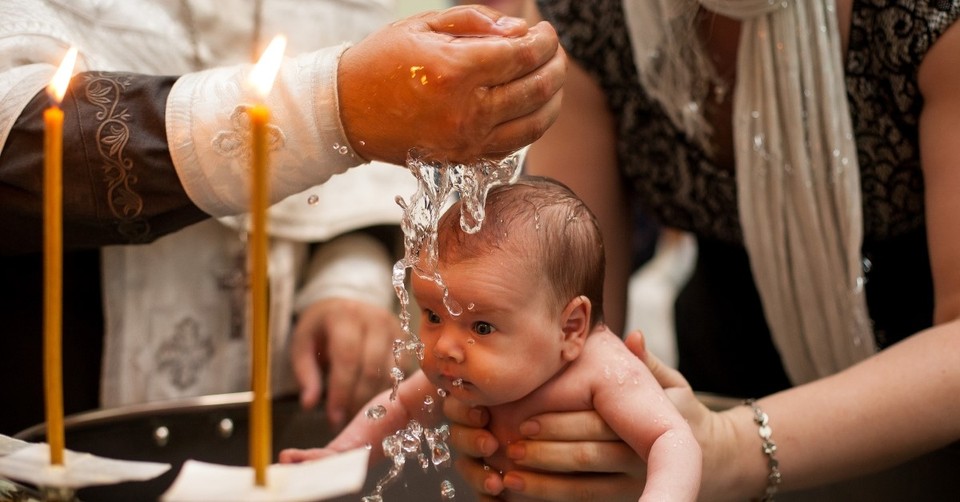At What Age Should a Person Be Baptized?

Baptism is a universal sacred ordinance across all Christian denominations. It is a time in which a person enters a committed life for Christ. Baptism is also a symbol of commitment to the church body.
While baptism is important because it is tied to repentance and faith, it is also rather controversial. When the question of age arises, the answers are always plentiful. In this discussion, we will focus on what age a person should be baptized.
The quick answer to our question is that there is no answer; the Bible does not give a definitive age for baptism.
To explore this question further, let’s take a look at the Biblical sources for baptism, what the modern Christian view of baptism is, the various practices of baptism across denominations, and some advice if you or a loved one is considering baptism.
Biblical Sources for Baptism
As stated in our introduction, the Bible does not give us a clear answer about what age you should be baptized. Rather, Scripture give us examples of baptisms and share with us what baptism means.
In Matthew 3, John the Baptist is preaching in the wilderness of Judea. People from Jerusalem, Judea, and surrounding areas are coming to him to be baptized. In verse 13, Jesus comes from Galilee to be baptized by John at the Jordan River, but John is hesitant. Jesus says in verse 15, “Allow it for now, because this is the way for us to fulfill all righteousness.”
Jesus’ words “fulfill all righteousness” speak to a consistent and faithful relationship with God. When Jesus emerges from the water, Scripture says the heavens suddenly opened. Because Jesus expressed his commitment to God through baptism, God reciprocated by equipping Jesus for the ministry he was about to begin
Paul is in Corinth and when Silas and Timothy get there he starts preaching to the Jews. They don’t believe him, so he declares he will go to the Gentiles. Acts 18:8 says “Crispus, the leader of the synagogue, believed in the Lord, along with his whole household. Many of the Corinthians, when they heard, believed and were baptized.
In Acts 16:25-34, Paul and Silas are in jail and there is a massive earthquake. Everyone’s chains came loose, and the doors were opened. Paul tells the jailer not to harm himself because everyone was still there. The jailer believes in the God Paul and Silas have been preaching about and everyone in his household is baptized.
The examples from Acts display a personal belief that led to baptism. There was a personal choice to follow Christ and that choice urged them to be baptized. Galatians 3:26-27 and Romans 6:3-4 show that when we are baptized, we become sons and daughters of Christ through faith. We join Jesus in his death and resurrection.
What Does Modern Christianity Say?
Historically, baptism was considered crucial to washing away the original sin all humans have. Infant baptism was popular, and parents were encouraged to baptize their babies quickly. Entire households would be baptized once the head of the household was. But we must remember that salvation was given by God’s grace, rather than an individual choice.
Across the board, Christians today lean toward baptism being an outward expression of their commitment to a life sold out to Christ. Being baptized is a way to demonstrate a believer’s commitment to their faith and their church.
Some Christian churches also teach that baptism is not a necessary part of being saved. Rather, baptism is a sign of obedience to God and adherence to the guidelines laid out in Scripture. All believe that baptism is an important and sacred ordinance that should not be taken lightly. The decision to be baptized comes from a place of conviction. It is not just something you do out of a sense of obligation.
Baptismal Practices across Christianity
I don’t think we can leave this discussion without mentioning the various baptismal practices in the Christian church.
The Roman Catholic Church has always practiced infant baptism. In their Code of Canon Law, it states that parents should have their children baptized as soon after birth as possible. Catholics believe that baptism is necessary for salvation. Although infant baptism is practiced, the age requirement is discretionary. Adult converts can be baptized as well.
Lutheran churches also practice infant baptism and teach that baptism is connected to regeneration. The infant is cleansed of original sin when baptized. Lutherans believe that baptism is the work of God as reflected in the following statement.
“In summary, infant baptism is a significant practice within Lutheran belief, reflecting the understanding of God's inclusive love, the communal responsibility for nurturing faith, and the affirmation of God's promises for the youngest members of the Christian community. It serves as a visible sign of God's grace at work from the earliest stages of life and establishes a foundation for the child's ongoing journey of faith within the context of the Lutheran tradition.”
Eastern Orthodox churches perform both infant and adult baptisms. Infants are baptized from the first 40 days of life to a few months old, and the purpose of baptism is to wash away their original sin. Adults requesting baptism are required to study and perform catechism prior to baptism and being received into the church.
Presbyterian and Reformed churches teach that baptism is a sign and seal of God’s covenant with man. It is a sign of God’s grace, but not a means of salvation. They do perform infant baptism, though there are some Presbyterian churches that do not.
Methodist churches baptize infants, children, and adults. Infant baptism is a means of grace and entrance into the church. They believe that an infant who is not baptized is entrusted to God’s mercy. For them, baptism does not change you without faith.
Baptist churches practice believer’s baptism. They reserve the ordinance for those who have personally come to a saving knowledge of Jesus Christ. It is an outward symbol of an inward transformation. The person must be old enough to understand what genuine faith is.
Non-denominational churches lean toward believer’s baptism as well. There is less emphasis on age and more on the individual’s personal commitment to follow Christ.
Are You or a Loved One Considering Baptism?
We have established that baptism is a sacred and holy act. It should not be entered into without serious thought and prayer.
If you or a loved one are considering baptism, begin specifically praying about this decision. Parents should spend time not only in prayer, but also in Bible study. Read and pray over key passages such as Matthew 28:19-20, Acts 2:38, Colossians 2:12, and Romans 6:3-4.
Seek advice from pastors, religious leaders, counselors, and other Christians. These people are essential to helping you or your loved one better understand what God is speaking to you.
Our conclusion is simple. There is no specific age mentioned in the Bible regarding baptism. What is shared with us is the importance of baptism. Jesus was baptized and that should be a glaring instruction that as believers we should follow in His example.
Historically, infant baptism was practiced, but as we have seen in the Christian church today, adults are baptized as well. If you or someone you know is considering baptism, pray and seek counsel as you prepare to take this exciting next step.
Photo credit: ©Getty Images/Denis Burkin

Originally published June 25, 2024.





